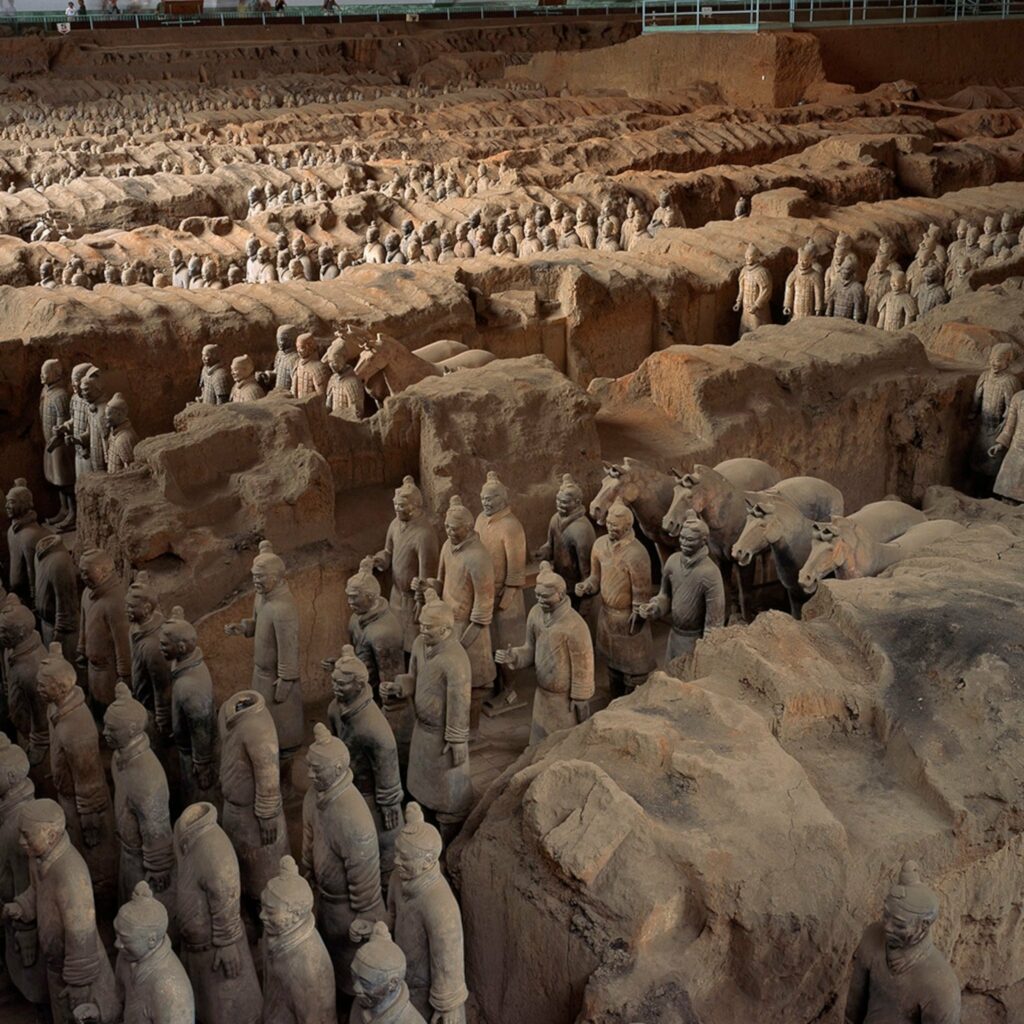Unearthing China’s Ancient Wonder

In the heart of China’s Shaanxi province lies an archaeological marvel that has captivated the world for decades. The Terracotta Army, a vast collection of life-size clay figures, stands as silent sentinels guarding the tomb of China’s first emperor, Qin Shi Huang. This remarkable discovery offers a window into the artistic brilliance and engineering mastery of ancient Chinese civilization.
Masterpieces of Ancient Craftsmanship

Among the 8,000 warriors, each figure is uniquely crafted, showcasing an astounding attention to detail. One particularly well-preserved warrior reveals intricate designs even on the soles of his shoes, demonstrating that the ancient Chinese considered practicality alongside aesthetics. This level of individuality speaks volumes about the skill and dedication of the artisans who brought this clay army to life over two millennia ago.

A Colorful Past Lost to Time

The warriors we see today are but shadows of their former glory. Originally painted in vibrant hues, their colors vanished within minutes of exposure to air and light during excavation in the 1970s. This poignant loss reminds us of the fragility of history and the challenges of preserving ancient artifacts.
The Emperor’s Mysterious Tomb
While the Terracotta Army stands guard outside, Emperor Qin’s actual tomb remains sealed, shrouded in mystery. Ancient accounts speak of a subterranean palace with ceilings adorned with pearls mimicking the night sky, rivers of mercury flowing through the chambers, and deadly traps to deter intruders. Modern soil tests have detected high mercury levels, lending credence to these fantastical descriptions.
Legacy of an Empire

The Terracotta Army is more than just an archaeological treasure; it’s a testament to human ambition, creativity, and the eternal quest for immortality. As we continue to unravel its secrets, we gain deeper insights into the remarkable civilization that created it, reminding us of the enduring power of human innovation and artistic expression.
